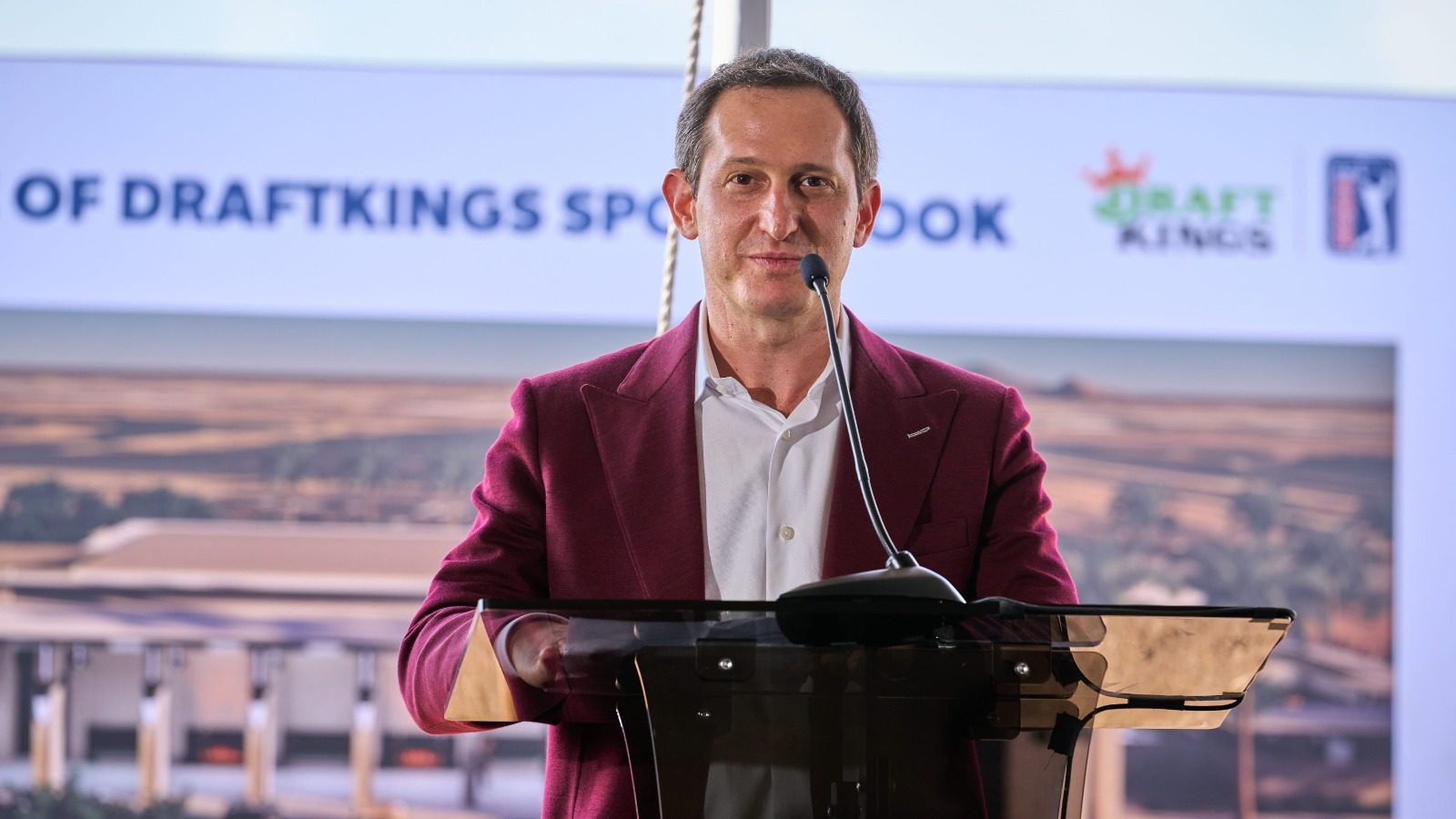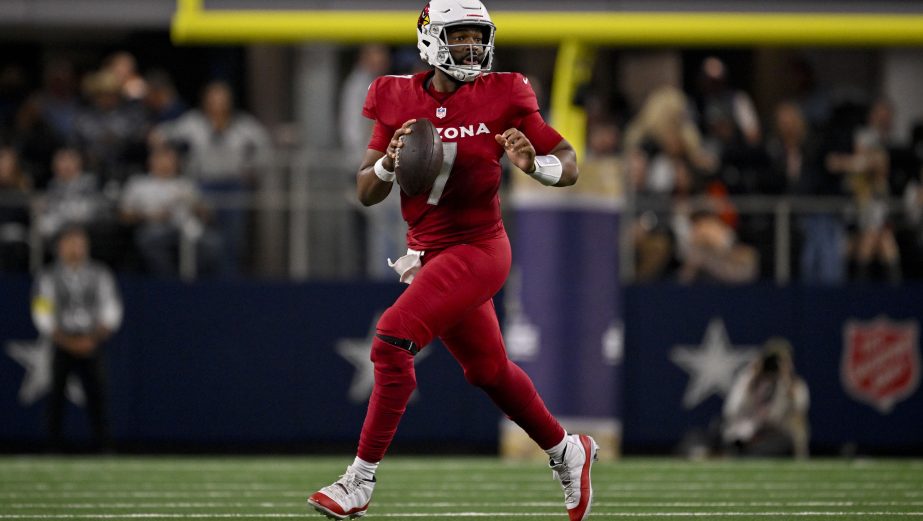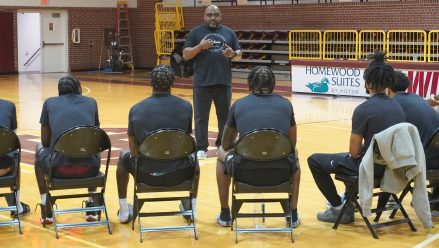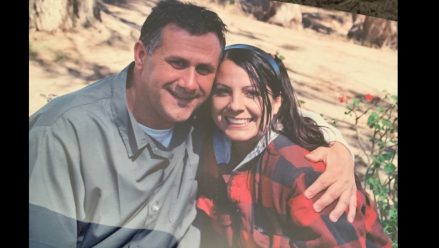Jason Robins, DraftKings CEO, chairman of the board, and co-founder, sat down with our Jeff Edelstein for an exclusive, wide-ranging interview shortly after the company’s earnings call Friday morning.
The following transcript is lightly edited and condensed.
Predict this
Q: DraftKings recently announced it’s entering the prediction market space. How much of that decision is a long-term play versus just making sure you’re covered if it takes off?
Jason Robins: ‘I don’t know’ is the easy answer to that. I don’t know how long-term it’s going to be. It’s anyone’s guess. It’s so new, and right now there are court cases and other things playing out. I can’t tell you, because I’m not a lawyer, and I can’t predict what future politicians who haven’t even been elected yet are going to do.
So it’s both. We have to make sure we don’t miss the boat and that we capitalize if the opportunity is there. But we also have to consider that this could be something that’s around for a long time and an important part of our overall portfolio.
Either way, the approach is the same. We’re going to go after it, compete, and win. We’ll be measured in how we think about investment and marketing until we get more data and have a better sense of how long-term this looks.
Q: And will you launch in the markets where you already operate, or only in markets where you don’t?
Robins: We’ll have a different approach for different states based on a variety of factors. We’ll have a broader footprint for non-sports, but it won’t be everywhere. We’ll focus our sports offering on states that don’t have legal online sports betting.
Q: Fair to say California and Texas are pretty high on the list?
A: Yes. But we’re also going to make thoughtful decisions. If it makes our tribal partners more comfortable, for example, to block tribal lands, we’ll do it. It’s not like there’s a big financial opportunity we’re giving up if we do that, and maintaining those relationships is important.
It’s the same with states. I don’t believe there’s much financial opportunity in places where we already have online sports betting. So why go there when it’s just going to upset regulators that we have great relationships with?
Q: Some regulators in states where DraftKings already operates have warned against getting involved in prediction markets elsewhere. How much of a concern is that?
Robins: We have really strong relationships with regulators, and we’ve been transparent. For example, when we were acquiring Railbird, we didn’t wait for them to read about it; we told everyone right away. We’ve gotten good feedback and appreciation for being so open.
I’m optimistic we’ll have a good resolution. Most of these states haven’t said, “You can’t do it anywhere.” They’ve said, “We don’t want you partnering with someone who’s doing it illegally in our state.” As long as we stick to that, we’ll be fine.
Q: DraftKings is famous for aggressive marketing, both in DFS, then sports betting. Should we expect something similar with prediction markets?
Robins: No, I don’t think that’s the approach at the start. When we did the big marketing blitz for fantasy, we already had years of operating data — customer values, acquisition costs, what marketing worked. Here, we don’t have that yet.
We’ll test, learn, and ramp up based on data. If the numbers suggest marketing is a good investment, we’ll do more. If not, we won’t. But we’re not going to launch with a huge marketing blitz.
Q: Those DFS customer lists might come in handy again in states like California and Texas, right?
Robins: I certainly hope so.
Q: Prediction markets don’t have traditional responsible gambling requirements imposed on them externally yet. Will DraftKings implement its own?
Robins: Yes. We’re strong believers in responsible play for sports betting and iGaming, and we’ll bring that to prediction markets, probably calling it “responsible trading” or something along those lines.
We’ll leverage the same tools we already have. It’s really just repurposing them for this product, not reinventing the wheel.
Ch-ch-ch-changes
Q: How do you think you’ve changed the most as CEO, from the time between launching the DFS product all those years ago to going public and to today?
Robins: I’m a lot older, for one. But it’s hard to point to one thing because it’s everything. The way that I spend my time, the things that I’m focused on, it’s completely different.
In the early days, there were a handful of us doing everything. I was answering customer support emails, I was creating product specs, I was setting up marketing campaigns. Now I don’t do any of those things. Even though I love them, I’ve let them go, and I have other people who are much better and smarter than I am at those things. If I try to get involved, I’m probably going to just slow them down or get in the way.
For me, it’s been figuring out what I need to focus on and what I can do to add the most value. Not necessarily what I’m most interested in or personally passionate about, but what I feel like I need to be involved in.
Those are things like large deals, government affairs, things I didn’t spend any time on in the early days. Back then we were just trying to get a product off the ground and get some customers.
Q: Speaking of the old days, from your perspective, what’s the DraftKings–FanDuel relationship like today from the C-suite level? Obviously you’re fierce competitors, but you often have overlapping interests. How do you see the dynamic between the two companies?
Robins: It’s competitive, and I think we all want to win and grow. But because of the nature of the industry, it’s also very important — particularly with things on the government affairs side — that we collaborate. Having unified views on things in that area is very helpful when it comes to communicating with policymakers.
Over the years, when you do that together, you get to know people. I have several people there that I would consider to be good friends.
It’s this combination — we know we’re competitors, we know we have to battle it out when it comes to winning deals and customers. But there are other things that are absolutely essential that we collaborate on, areas where we should not be trying to get a leg up, like responsible gaming. We should be trying to get the best possible answers for the industry on how things should be done, and get everyone to figure it out together.
Scandals and effects
Q: We’ve seen a lot of betting scandals dominate the news lately. They’ve crossed over into the mainstream, and Congress is asking questions. There’s talk about limiting certain types of prop bets and cracking down on micro markets. Some states, including New Jersey, have legislation pending. What’s your position on that?
Robins: First, it’s very important to remember that the whole reason legalization was important from a policymaker perspective was to take an activity that was generating enormous amounts of volume in an illegal market — without consumer protections, without tax revenue, and without a need to collaborate and report suspicious activity — and bring it into the legal market.
Bringing it into the legal market is the solution. Pushing it back into the illegal market will create the problem again.
There may be cases where there are fringe markets that are not a big deal. In our judgment, we don’t believe that limiting a few of those things would drive people back to the illegal market. But we all have to be careful, because it’s a slippery slope. You can look at one or two things in isolation and say, “That’s fine,” but all of a sudden you start piling on a bunch, and now you have a weaker product than what’s in the illegal market. That starts to push people back underground, or prevents them from ever migrating to the legal market when new states launch.
It’s a balance. Everyone needs to understand that legalization is the solution — this is how we catch this stuff. People do try to cheat. You’ve had cheating scandals in all sorts of sports. What you want is to catch bad actors when they’re doing these things and make sure there are consequences. That’s the best deterrent. You’re never going to completely eliminate it, but that’s how you make it rare.
Right now, the incidents we’re talking about are very limited — one or two players in leagues with hundreds or thousands of athletes.
Take the NBA stuff. It’s like a tale of two different approaches with very predictable results. The Rozier accusations were caught right away and were limited in impact. Then there was the illegal poker game that ran for years, scamming millions, involving organized crime.
That’s the difference: in the legal market, things get caught quickly. In the illegal market, they fester for years.
The easy reaction is to say, “This is why we shouldn’t have sports betting.” But that’s not a real choice. You’re going to have sports betting. The question is, do you want legal sports betting or illegal sports betting?
We’ve had some form of betting since the beginning of time. It’s not going away. The choice is whether it’s done safely, with tax revenue and oversight, or whether it’s run by criminals with no rules or protections. Those are the two choices.
iCasino and more
Q: Turning to iCasino—it started out strong but legalization has stalled. Do you see progress coming soon?
Robins: I do. I actually feel more optimistic now than I have in years. States are realizing they need revenue, and they’re seeing the rise of sweepstakes casinos, and I think lawmakers are starting to see the same thing they did with sports betting: they can either let it happen illegally, or they can regulate it responsibly. I’m hopeful that will win some people over.
I’d be disappointed if we didn’t get at least one or two new iGaming states in the next few legislative sessions.
Q: You’ve lived through every era of modern American wagering, from gray-market DFS to PASPA repeal to prediction markets. What’s the next era, and what do you think will surprise people most?
Robins: Honestly, I never know what’s coming next. Our skill has never been predicting the next era; it’s recognizing it faster and acting on it faster when it does arrive.
I couldn’t have guessed prediction markets or any of this. But when the next thing comes, we’ll recognize it quickly and move. That’s always been our advantage.








